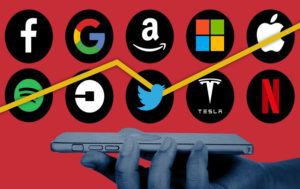“There are not two Brazils. We are one country, one people, and one great nation,” Lula claimed in his victory speech last Sunday. The event embodied the reconquest of the party of the workers. The president of the left-wing party defeated his opponent, current President Jair Bolsonaro, by 0.9%. This slight difference, which has never been seen before in Brazil, demonstrates the high levels of polarization among the Brazilian population. The major elements of the new leader’s objectives and expectations are highlighted in this article, which acts as a guide to comprehending the present political climate in Brazil.
Who is Lula?
Lula, who comes from a humble background, witnessed firsthand the difficulties that Brazil’s lower classes face every day. He got involved in politics in 1970. First, he got elected as the head of the steelworkers’ union in So Paulo. He then assisted in founding the leftist Worker’s Party, from which he became president, winning two consecutive elections and leading the nation from 2003 to 2011.
During his almost ten years in power, Brazil experienced an unprecedented economic boom. As a result, the country not only returned to growth at more than 5% per year from 2007 but also lifted 30 million Brazilians out of poverty. Moreover, 14 million jobs were created, which resulted in a 6% growth rate in 2010. His economic and social programs have given him the support of the most disadvantaged families. When he left office in 2010, he had an approval rating of 83%.
Today, Lula is at the heart of the controversy. Indeed, his image suffered greatly when he was charged with corruption and money laundering in 2017 and sentenced to a 12-year prison term. However, he was released only after serving less than two years of his sentence, following a UN investigation that determined that no concrete evidence was against him. Nevertheless, his condemnation will cast a shadow on his perceived probity.
While Lula made incredible and irrefutable changes for the development of Brazil, it also seems like he assisted a corrupt government in diverting unimaginable amounts of money from the people he was actively trying to help. This is the reason for the population’s blatant division. Some people can overlook his former abuse of power as, of right now, he is the best choice for Brazil; others, however, simply cannot.
His economic plan
People are clamoring for changes. With unemployment reaching almost 9%, poverty and hunger are widespread. This disastrous economic situation increases instability and insecurity in Brazil.
Inflation is one of the most pressing issues that Lula’s government aims to address. The latest factor is estimated to be between 7 and 10%. The poorest are the first to feel the effects of this price increase. To deal with the consequences, Lula intends to raise the minimum wage to reflect the inflation results. His social program includes an income tax exemption for the poorest and an increase in aid through the program “Bolsa Familia,” created in his first mandate. Lula has also promised to strengthen social protection, by reversing the labor code reform implemented in 2017.
Additionally, it is important to note that he has a “zero-tolerance” policy on the deforestation of the Amazon and wants to work with institutions to preserve the ecosystem. The measure is key due to recent concerns regarding global warming and, contrary to his opponent, Bolsonaro, Lula promised to prioritize the environment before economic gain.
His social plan
Lula wants to help the most impoverished and believes in giving everyone a chance. In fact, he plans to boost the economy and improve social well-being simultaneously. Improving the social welfare system is at the core of his policy. The Bolsa Familia, as mentioned before, is an income for each kid in exchange for them going to school. This acts as an incentive, as it is expected that by increasing the level of education, unemployment will decrease and revenue will increase, thus reducing the inequalities between social classes.
Moreover, he showed support for minorities. Lula fought to defend the rights and territories of indigenous peoples and even created a new ministry for them. He also tries to lessen discrimination towards LGBTQ+ persons by putting social and security measures in place.
His international position
Contrary to the former president’s policy of diplomatic isolation, Lula wants to give Brazil a role on the international stage. He intends to rejoin international agreements to make the country more appealing to investors. He has stated his desire to cooperate closely with China, the United States, and Europe for the growth of his state.
To summarize, from an international perspective, Lula is precisely what Brazil needs right now: a strong, well-liked leader who prioritizes population social inequalities and can create positive change. However, from the intern’s perspective, his character clearly divides the population due to the trust placed on him. Undoubtedly, the country urgently needs stability. So, although Lula might be controversial, he is well-regarded internationally, knows how to manage the economy, and genuinely cares about the people, which gives us hope he can be the change Brazil so desperately needs.
Featured cover image:The Wall Street Journal






